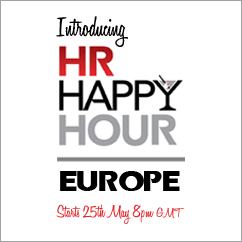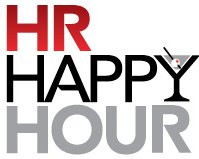HR Happy Hour Europe - Launches Today
In what future historians of the grand age of social enlightenment in Human Resources will look back upon and mark as a truly watershed moment, today the HR Happy Hour Show sets a course for worldwide domination with the debut Episode of HR Happy Hour - Europe!
Specifics: the show is live at 3PM ET (8PM in the UK), and you can listen online here. Follow the conversation on Twitter using the #HRHappyHour tag.
The show is a joint project between HR Happy Hour, (essentially me), and the great folks from Jobsite, the leading careers and online recruitment site in the UK. Jobsite is dedicated to helping people connect with that perfect next opportunity, and over the years has really stretched the typical ways of thinking about what a 'traditional' job board is all about.,
It is in that spirit that Jobsite is staging what they term 'Fresh Thinking' events, where Jobsite is bringing together innovative and cutting-edge ideas and people to engage, share, and progress the dialogue around important topics of the day. The first event, with special guests Amanda Hite and Scott Stratten, focuses on the concepts of social media in recruitment, marketing the organization, and the critical need for engagement of the organization's leaders and staff to make it all work.
In conjuction with the Fresh Thinkers event, Amanda and Scott, (joined by Jobsite's Felix Wetzel), will join me on the inaugural HR Happy Hour - Europe show today at 3PM ET which is 8PM in the UK.
You can listen to the show live on the show page here, on the listener call in line 646-378-1086, or via the widget player below:
Note - UK and other outside the US listeners can use the Skype feature to call in to the show as well.
It should be a fun and lively show as the HR Happy Hour makes it's first step towards what will truly be looked upon as a global media empire!

 Steve
Steve



